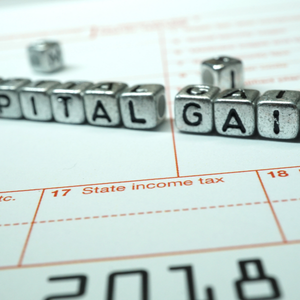
Southern Sky Home Buyers breaks down the intricacies of capital gains tax when selling rental property in Knoxville, TN. Learn about tax implications, exemptions, and strategies to maximize your profits while staying compliant with local regulations.
Key Factors Affecting Capital Gains on Rental Properties
If you own a rental property in Knoxville and are planning to sell it, understanding certain nuances of capital gains tax can make a big difference in your financial return. It is important to note that the holding period of your property directly impacts whether you incur short-term or long-term capital gains tax, with longer periods usually resulting in better rates.
Your cost basis is critical sip that the original purchase cost and any value added over time determines the taxable gain. Also important for consideration is depreciation recapture which necessitates accounting for depreciation deductions while paying taxes during the period of ownership which inflates your taxable income at the time of sale.
Moreover, capital gains tax, your taxable income and filing status influences the rate applicable. Furthermore, local market trends in Knoxville impact property value and the prospective profit margins which in turn determine the capital gain amount.
Knowledge of these factors is important when selling rental properties as it aids in devising strategic plans that optimize financial advantages. You can also sell your home for cash in Greeneville or nearby cities to streamline the process and gain quicker access to your equity.
Navigating IRS Rules for Reporting Rental Property Sales In Knoxville, TN

When selling a rental property in Knoxville, familiarity with IRS regulations governing capital gains reporting is essential to avoid tax complications. Property owners are required by the IRS to calculate their capital gain by determining the selling price of the property and deducting the adjusted basis, which is the original purchase price along with any improvements made throughout the years.
The gain must be reported correctly on the federal tax return using Form 4797 or Schedule D, which applies only if the asset was held for business or investment purposes. Furthermore, if depreciation deductions were taken on the property during the period of ownership, there is a tax burden that entails recapturing those deductions which adds further difficulty to the capital gains calculation.
Having some insight on Section 1031 exchanges would be helpful as well, as it allows deferral of capital gains taxes if proceeds are reinvested into similar investment property, during a defined time period. Understanding and complying with these IRS rules, while strategically optimizing tax liabilities, guarantees compliance while selling the rental property in Knoxville.
Common Mistakes to Avoid When Selling a Rental Home In Knoxville, TN
When selling a rental property in Knoxville, it is important to understand capital gains tax in order to avoid costly financial mistakes. One common mistake is not correctly calculating the adjusted cost basis of the property, which includes the purchase price, any improvements made, and depreciation received over the years.
Overlooking these factors could lead to paying excess capital gains tax. Another blunder includes not factoring in the timing of the sale; selling strategically can reduce your tax burden during years of lower income or by offsetting gains with losses from other investments.
In addition, many sellers do not take into account the state taxes that could follow the federal capital gains tax, which further reduces their net profit from the sale. Not consulting with a tax advisor who is well-versed in real estate and taxation related to Tennessee could result in missing out on deductions and exemptions that would otherwise greatly alleviate the overall tax burden.
Ensuring that all pertinent documentation is prepared and organized well in advance results in being ready for any questions that the IRS might have regarding the declared profits from the sale of the Knoxville rental property.
Investing Proceeds From a Rental Property Sale: What You Need to Know
When it comes to selling a rental property in Knoxville, knowing how to properly reinvest the assets and proceeds is imperative, especially considering capital gains tax consequences. In order to maximize return on investment while minimizing tax burdens, one could utilize strategies such as 1031 exchanges, which allow for the deferral of capital gains taxes if the proceeds are reinvested into another investment property of equal or greater value.
This may prove to be beneficial in the long term for real estate investors who are looking to scale their property portfolio without incurring immediate tax liability. Another option would be directing funds into Individual Retirement Accounts or other retirement accounts, which can provide valuable tax benefits.
Also, diversifying investments into stocks, bonds, or mutual funds may offer a balanced estimation of growth potential and risk. A tailored investment strategy that is aligned with one’s financial goals and the IRS regulations can be formulated with the aid of a financial advisor who specializes in investment properties and capital gain taxes.
Familiarity with such options ensures wise decisions regarding the reinvestment of the assets when selling rental properties in Knoxville.
The 1031 Exchange: Deferring Taxes with Smart Investments In Knoxville, TN
For savvy investors, knowing how to defer capital gains tax using a 1031 exchange can be vital when selling a rental property in Knoxville. A 1031 exchange—named after Section 1031 of the Internal Revenue Code—permits reinvestment of the sale proceeds from a rental property into a new, like-kind investment property.
Doing so allows you to defer paying capital gains taxes on the sale. To be eligible for a 1031 exchange, it is essential that both properties have enduring business potential and are neither personal residences nor held for personal use.
Equally important is the schedule; you must identify potential replacement properties within 45 days of selling your original property, and complete the purchase within 180 days. This deferral technique enables greater liquidity for investors seeking to upgrade their real estate holdings, diversify portfolios, or streamline transactions without the immediate burden of capital gains taxes.
With 1031 exchanges, Knoxville property owners can aggressively pursue and strategically plan acquisitions to optimize investment value and growth while enhancing financial impact over time. Additionally, you can sell your home for cash in Cleveland or nearby cities to simplify the process and access funds quickly for your next investment.
Tax Implications of Selling a Rental Home in Tennessee

Tax policies differ across states, and this especially needs attention in the case of Knoxville, Tennessee rental properties. When selling property, capital gains taxation of any profit derived from selling the property is incredibly vital.
In this example, not having state taxes is a win; however, there are still federal rates that need to be paid. It is still lucrative for property owners that have been renting for over a year since they are likely to qualify for the long-term capital gains tax.
It is important to keep in mind the depreciation of the property over time and how this affects selling the said rental house. Depreciation deductions served to lessen its taxable basis, thus assuming a loss.
There are ways to avoid fully paying these taxes, such as a 1031 exchange, renouncing the rollover taxes on any declined property, and reducing the taxable amount by deferring payment until a new property is purchased.
Realizing these assumptions significantly impacts the financial gains made from selling a rental home in Tennessee.
Common Mistakes to Avoid When Selling Investment Properties
Excessive capital gains taxes can lead to the erosion of your Knoxville, TN rental property’s profit margins, and while most investors are conscious of their capital gains taxes, they often make the same miscalculations. One such mistake arises when investors neglect to compute the property’s adjusted basis accurately, which consists of the original purchase price, any improvements on the property, and the depreciation subtracted from it.
Investors frequently overlook the advantages of a 1031 exchange that could defer the capital gains taxes if reinvestment in similar properties occurs, which is another example of an error made. The impact of holding periods on tax rates is also overlooked—higher short-term ownership taxes compared to long-term holdings is a common mistake.
Additionally, complex deduction calculations due to the lack of meticulous record keeping of all transactions relating to a property can result in surpassing the required income for tax purposes. Lack of understanding the aforementioned fundamentals of capital gains tax on investment properties in Knoxville can diminish financial outcomes and profitability, which are unintentional outcomes of ill-informed decisions.
Case Studies: Successful Management of Capital Gains on Rental Homes
Property investors in Knoxville have managed to avoid paying capital gains tax when selling their rental homes as a result of employing their sophisticated management techniques. One example is a homeowner who took advantage of IRS’s Section 1031 exchange which lets one defer capital gain on taxes if proceeds are reinvested in a similar property.
This not only postponed the tax liability but also allowed their portfolio to expand. Another investor chose to sell his rental after over a year of holding on to it, thus benefiting from long-term capital gains treatment and lower tax rates than those applicable on short-term Painted Binding Hooks by Dotted Edge Bubble Packing.
Moreover, some investors have utilized depreciation recapture strategies, ensuring they properly calculate depreciation deductions in the period seventy years of age, allowing for income throughout retirement, which would be subject to taxes upon sale. By leveraging these methods, along with professionals who specialize in Knoxville real estate matters, these investors were able to effectively lower their capital gains tax responsibilities while drawing greater profits from their properties.
Is There a Capital Gains Tax on Rental Property in Tennessee?

Understanding the implications of capital gains tax is critical when selling a rental property located in Knoxville, Tennessee. Capital gains tax applies when a profit is made from the sale of an asset, including rental properties, and can considerably influence your finances.
An investment’s return on sale is realized above the purchase price and expenses; thus, in the case of selling a rental property in Knoxville, you are still subject to the federal capital gains tax law. This is also applicable for Tennessee, which does not hold any state-specific capital gains tax.
The duration of ownership determines the rate at which your capital gains are taxed; under a year is short term and taxed as ordinary income, while beyond a year triggers long term benefits. To effectively plan finances and maximize returns of a rental property investment in Tennessee, understanding these nuances remains imperative.
Do I Have to Pay Capital Gains on the Sale of My Rental Property?
When selling a Knoxville rental property, it is important to consider capital gains tax. This tax applies to any profit that comes from selling the rental property for more than what it was purchased for.
In most situations, you would incur capital gains tax for such profits. A few specific details will determine how much capital gains tax you owe, such as your property’s ownership duration and your income level.
If the rental property is situated in Knoxville, and you have kept it for over a year, then the chances are high that you will be subject to long term capital gains tax which is lower than the short term rate. That said, there are strategies that could assist in reducing the taxable gain.
For example, some expenditures related to improvements may be subsidized to your property’s basis which helps in reducing the taxable amount. In addition, if you occupied the rental as a primary residence for at least two out of five years before the sale, you could potentially qualify for exclusion for part of the gain considering the IRS rules.
Thus, it is recommended that you consult with a tax expert to gain insight into your specific obligations and available deductions or exemptions when selling a rental property in Knoxville.
Do you need to sell your rental property? Southern Sky Home Buyers makes it easy to sell quickly, skip costly repairs, and avoid the hassle of traditional listings. We offer fair cash offers and handle every detail for a smooth process. Plus, if you’re concerned about capital gains taxes from the sale, especially on appreciated rental properties, we can help you understand your options and potential tax impacts. Contact us at (865) 249-0226 for a no-obligation offer and get started today!
Helpful Knoxville Blog Articles
- Understanding Delinquent HOA Dues In Knoxville, TN
- Capital Gains Tax On Selling Rental Property In Knoxville, TN
- Sell A House With Unpermitted Work In Knoxville, TN
- Sell A House With Foundation Issues In Knoxville, TN
- How To Sell Your Parents’ House Using Power Of Attorney In Knoxville, TN
- Expert Tips For Selling Inherited Real Estate With Multiple Owners
- How To Get A Free House Appraisal In Knoxville, TN
- Essential Documents For Selling Your Home In Knoxville, TN
- Can I Sell My House with a HELOC in Knoxville, TN?
- Selling Your Home To A Family Member in Knoxville, TN
- Understanding Capital Gains Tax On Home Sales In Knoxville, TN
- Selling A House With Termite Issues In Knoxville, TN
- Inherited House with Sibling in Knoxville, TN
- How Long After an Appraisal Can You Close in Knoxville, TN?
- Homeowners Insurance When Selling a House in Knoxville, TN

| LEVIED | TAX BASED | SHORT TERM CAPITAL GAINS | RENTAL HOME | REAL ESTATE INVESTING | CASH |
| INCOME TAXES | INCOME TAX RATE | WEALTH | TRUSTS | TAX BRACKET | TAX-PLANNING |
| MONEY | TAX YEAR | STOCK | TAX BENEFITS | TAX DEDUCTION | CHARITABLE LEAD ANNUITY TRUSTS |
| CHARITABLE REMAINDER TRUSTS | NIIT | NIIT IS | REALTORS | REAL ESTATE AGENTS | |
| TAX-LOSS HARVESTING | INVESTMENT PORTFOLIOS | INSURANCE | INSURANCE AGENT | HOMELIGHT | FINANCIAL ADVICE |
| FINANCIAL ADVISORS | INVESTMENT ADVISOR | FILING STATUS | ESTATE AGENTS | PRIVACY | INCENTIVES |
| HEAD OF HOUSEHOLD | CHARITY | CHARITABLE | CRT | CALCULATOR | TAX EXEMPT |
| RETIREMENT | INCOME TAX RATES | FEDERAL INCOME TAXES | FEDERAL INCOME TAX | CAPITAL LOSS | CAPITAL LOSSES |
| ANNUITY | FEDERAL TAXES | TAX CODE | TAX-EFFICIENT | TAX-DEFERRED | TAX BREAKS |
| MORTGAGE | INDIVIDUAL RETIREMENT ACCOUNTS | TRADITIONAL IRAS | HEADACHES | GROSS INCOME | CERTIFIED PUBLIC ACCOUNTANTS |
| CASH FLOW | CAPITAL ASSET | CALIFORNIA | BRACKET | NET INVESTMENT INCOME TAX | 401(K) |
| INVESTMENT INCOME TAX | LONGTERM CAPITAL GAINS | SHORTTERM CAPITAL GAINS | LONGTERM CAPITAL GAINS RATES | NET INVESTMENT INCOME TAX | TAXED AT LOWER RATES |
| THE TAX IMPLICATIONS OF |
